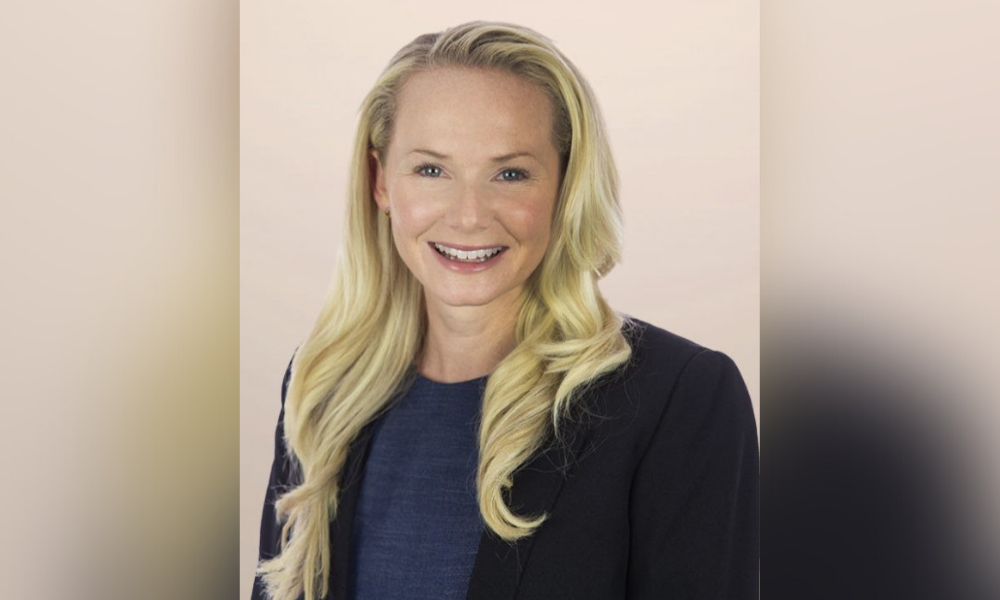
Lyra Health representative argues that mental health support has become a 'baseline expectation' of employees

During a town hall meeting about four years ago, Laura DeCook asked what her employer – Expedia Group – was doing to support employees’ mental health.
Somebody yelled out, “EAP!” Well, when DeCook went online to access the employee assistance program, the link was broken. Foreseeing an issue where a colleague in crisis couldn’t get the help they need, she was flown to the company’s headquarters in Seattle to meet with the CEO, head of HR and head of communications. They all agreed that the company needed to address mental health concerns.
DeCook was given a budget to run “managing stress at work” seminars and then launched a mental health ambassador program, which has grown from eight people to more than 200 today. “So many employees have reached out and said they had never been at a company that seemed to truly care so much about their wellbeing,” said DeCook, now a wellbeing specialist at Expedia Group.
DeCook shared her story as part of a recent webinar hosted by HRD Connect and Burlingame, CA-based Lyra Health. Joined by Arielle Trzcinski, director of product marketing at Lyra Health, and Janine Nicole Dennis, owner of New York-based Talent Think Innovations, LLC, the nearly 60-minute discussion focused on mental health in 2022, forecasting trends and creating proactive strategies.
According to Lyra Health’s latest survey, 60% of employee benefits leaders said employee expectations around mental health support rose over the past year, and 92% said providing mental health support became a higher priority for their company over the past year.
“Mental health support has become a baseline expectation for so many employees,” Trzcinski said. “It’s table stakes for your benefits strategy. The health care system is incredibly complex and super hard to navigate. Finding a primary care doctor can already be difficult, let alone finding a mental health provider, especially if you’re not quite sure what you need.”
Read more: Kraft Heinz VP HR: Why mental health should have its own HR budget
Since the COVID-19 pandemic began, employers have witnessed the mental health fallout for not only their workers, but also their workers’ families. While nearly one in five children had a mental health condition pre-pandemic, that number appears to have risen, according to the Centers for Disease Control and Prevention (CDC). In an October 2020 survey from JED and Fluent Research, six in 10 parents said their child had experienced emotional or mental health challenges in the past month. One-third reported that their child’s mental health had declined during the pandemic.
Meanwhile, only about 20% of children with mental, emotional or behavioral disorders receive care from a specialized mental health care provider, according to the CDC. Finding help for their children and making sure their mental health needs are met takes a toll on parents, and it’s easy for that stress to spill into their professional lives.
“It’s so important to remember that employees are much more than just workers,” Trzcinski said. “A high percentage of employers are making an investment in trying to remove barriers and making sure care is accessible to not only employees, but also their dependents.”
Over the past two years, employees have needed support more than ever. They’ve had to work through fear of being infected with the coronavirus, concern for the safety of their loved ones and anxiety over the uncertainty of it all. According to Lyra Health, 28% of employee benefits leaders said they believe more employees will seek support for complex issues, such as suicidality or substance use disorder, over the next year. The onus is on employers to amplify that support and increase resources available to workers.
“Untreated or under-treated mental health has a ripple effect across the organization,” Trzcinski said. “It can lead to inability, missed deadlines and create friction within teams. Making sure you make the investment in mental health is good for business. Engaged employees ultimately lead to profitability.”